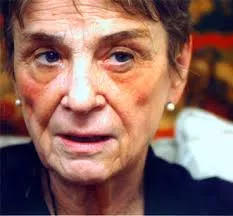
I was lucky enough to be taught and then work for Barbara in her final year of what was then the Refugee Studies Programme and subsequently became the Refugee Studies Centre at the University of Oxford. People from across the world came to learn, meet in smoky offices, enjoy incomparable parties or live in small corners of her home. Barbara was a force of nature and there were always jobs to be done and more to achieve but most importantly, after just one academic year, her 1995-96 cohort set out to work in places like Bosnia-Herzegovina, Palestine, Afghanistan, Cambodia, New York and the Thailand-Burma, with her central message on board – stay critical, be on the side and, when necessary, by the side of refugees.
Her 1986 seminal text – Imposing Aid: Emergency Assistance to Refugees – had exposed the shortcomings of the aid regime and delivery of aid for refugees. During our year at Oxford this was considered essential reading – and essential learning. This book had provoked strong reactions at the time of publication, asking why there was no tradition of independent, critical research in refugee assistance, pointing out that agencies involved were aware of the same mistakes being repeated over and over again in the set up and implementation of aid for refugees. The way in which refugees were viewed as a temporary phenomenon repeatedly meant aid was delivered under emergency relief rather than under a developmental approach.
Over the subsequent years, while working with pro-democracy activists and others in camps along the Thailand-Burma border these messages stayed with me. She would have enjoyed seeing the day a member of a camp committee proudly gave me a badly photocopied version of the Lords of Poverty, saying “we decided we could give this to you and you would understand and get the message across”. She would have really relished the subsequent five-hour discussion during which new structures were developed for distribution of rice, fishpaste, salt and mosquito nets. Her critique of camps was no small part of that debate that hot and humid afternoon.
For me, having had the privilege to know Barbara has meant many things. I learned that politeness and tact were not always useful skills, modesty can be unhelpful, a critical eye is always needed, and reversals of thinking can often be essential. Now, working in a widening participation university, I often hear her voice in my ear to make the personal political, challenge authority and institutions when necessary if you ever hope to improve the lives of others. Overall, I am thankful for the impact she had on my own life and special times spent with her. I have met dozens of others who think the same and have had their own lives affected by her presence.
"